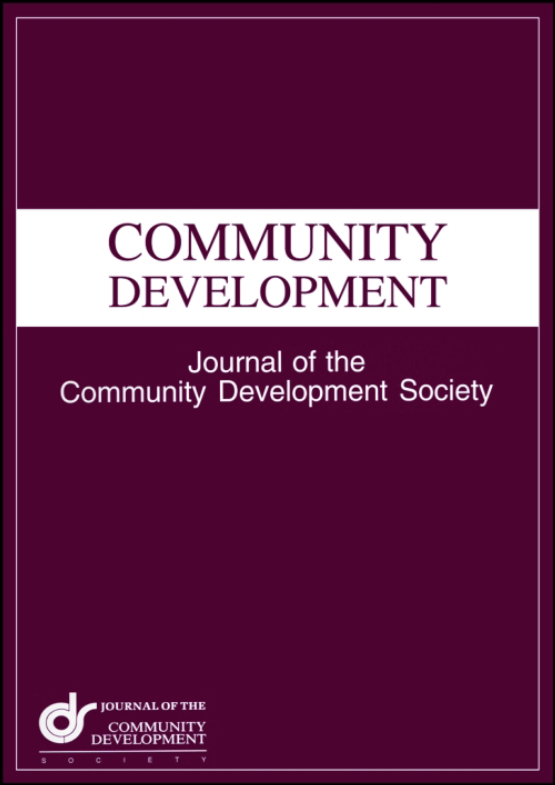Submit a Manuscript to the Journal
Community Development
For a Special Issue on
A Call for Progressive Qualitative Methodologies in the Community Development Space: Toward Theoretical and Practice Disruption and Innovation
Manuscript deadline
01 October 2024

Special Issue Editor(s)
Matthew Mars,
University of Arizona
[email protected]
Craig Talmage,
Hobart and William Smith Colleges
[email protected]
A Call for Progressive Qualitative Methodologies in the Community Development Space: Toward Theoretical and Practice Disruption and Innovation
Like all fields, community development research spans a range of empirical contexts and utilizes a diverse set of methodologies. This special issue will focus on the qualitative end of the community development scholarship continuum. The bulk of qualitative research in the community development literature relies heavily on case study designs and data collection techniques that are mostly limited to conventional approaches to data collection – e.g., interviews, document analysis, and field observations. While often interesting and somewhat informative, the resulting body of work is mostly descriptive in nature with focus being on how specific initiatives and programs affirm existing frameworks, models, and theories and/or adopt and adapt to normative practices and policy structures. Such conventional (and what we see as banal) approaches fall short of advancing or displacing existing paradigms and challenging existing or generating new theory. In short, the community of qualitative researchers in our field are failing to develop beyond the present.
This special issue confronts the preceding shortfall through a collection of qualitative method papers that creatively and rigorously push the boundaries of methodological designs and techniques and in doing so open new possibilities for field-wide progress in theory development and innovative practice. Indeed, we seek submissions that introduce radically different qualitative designs and techniques to the community development methodological catalogue. We encourage interdisciplinary papers that draw inspiration from the qualitative designs and techniques already in use in other more progressive literatures to include, as examples, anthropology, architectural history, humanities, marketing, sociology, urban planning, and the visual arts. Likewise, we welcome critiques of existing qualitative methods that both illuminate the limitations of said approaches and propose and demonstrate the promise of new strategies to push such conventions beyond established boundaries. Successful submissions will clearly articulate a) the types of new questions that can be explored through the qualitative
innovation being proposed and/or b) the new theoretical horizons that can be explored by way of the proposed qualitative innovations.
Examples of the types of qualitative innovations that are of particular interest include:
- Comparative methods that use historical archives, community-facing literatures, and other humanistic sources to generate new and contemporarily relevant insights on community development paradigms (see, for example, Mars, 2023).
- Autoenthnographic strategies that position community members as the primary instruments in research designs (see, for example, Harrison, 2004).
- Leading edge approaches to harvesting and analyzing community development activities and strategies through social media discourse (e.g., netnography) (see, for example, Thanh & Kirova, 2018).
Importantly, submissions should not be empirical pieces that directly use the qualitative design, method, and/or technique that is being showcased. Rather, submissions should clearly and robustly articulate the nature, steps and technical elements, opportunities, and limitations of the focal design, method, and/or technique.
Harrison, D. (2024). An autoethnographic exploration of ABCD within a rural pre-service education course, Community Development, 55:1, 5-19.
Mars, M.M. (2023). Looking behind the label: Firm-centric brand storytelling and the development of local consumption spaces, Local Development & Society, 4:2, 370-392.
Thanh, T. V., & Kirova, V. (2018). Wine tourism experience: A netnography study. Journal of Business Research, 83, 30–37.
Looking to Publish your Research?
Find out how to publish your research open access with Taylor & Francis Group.
Choose open access